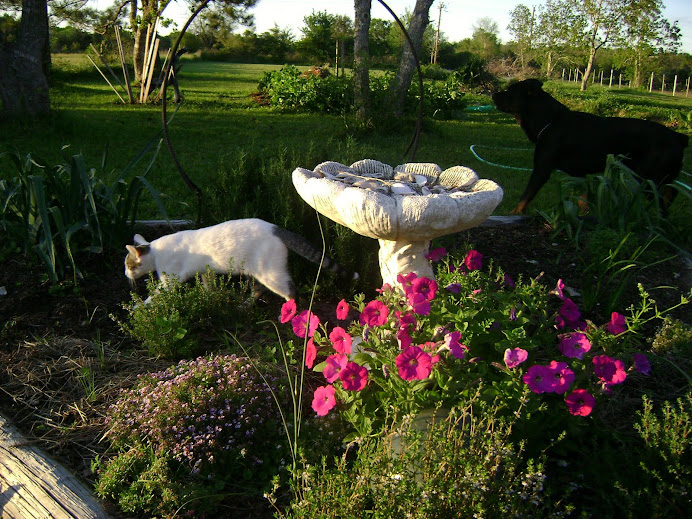There are so many times I find a gem, such as the Marigold, become so misunderstood through the ages. Much of the confusion is derived from the loss of natural beneficial qualities the Marigold obtained before man decided to improve upon it.
The old school Marigolds were esteemed as being powerful and even magical by the Aztec Indians. It is said that the early Spanish Explorers in the 16th century took the native Marigold seeds from the Aztecs and carried them off to Spain and they were then cultivated in Monastery gardens. From Spain the seeds went to France (thus the French varieties) and to Northern Africa (thus the tall African varieties). It wasn’t until a few hundred years had passed before the seeds found their way to North American, shortly after the Revolutionary War.
In every culture and through the ages the Marigold played an important role and leaving many ole wives’ tales along the way. Many of them reflect on the garden and the warding off of pests. Sorting it all out can be quite the task, but the simple truth is the old fashion varieties were very pungent and fragrant. They obtained a natural chemistry of toxins put out through their root systems and into the soil.
I have to wonder what wisdom ancient cultures discovered by growing Marigolds in their gardens and what information got lost along the way.`Our own Grandmothers told of planting Marigolds throughout their gardens. Some say to keep rabbits from eating garden vegetables, some say that planting them with your beans will keep the Mexican Beetle away, and why have so many generations found it important to plant Marigolds with tomatoes?
After research from science and agriculture departments from universities such as Louisiana State, we know that the toxins in the older varieties help reduce Root Knot Nematodes that can sometimes plague the southern gardener. The results of Root Knot Nematodes are sick and diseased plants, a major decrease of fruit and vegetable production and eventually death of the stunted plants. Marigolds can work as a virtual workhorse in the garden, but they must be used properly.
Here’s How to Make Marigolds Work for You!
1. Marigolds must be planted with diversity in mind. By this I mean no chemicals or pesticides should ever be used anywhere in the garden. Even organic chemicals can have devastating results if not used properly and actually there is really not much need for any of them when beneficial predators are in place.
Marigolds as well as other flowers and plants can have problems with pests such as aphids and spider mites. But there are many natural predators to take care of the pests. Small lady beetles, predatory mites, minute pirate bugs, big-eyed bugs and predatory thrips will maintain and keep things in check.
2. Soil rich in organic matter and a well mulched garden will also keep all plants vigorous and healthy. Leaving bare dusty and sandy soil, especially during dry and drought periods will increase pests such as the spider mites. Healthy soil will also help keep plants free from various virus’ as well as many diseases.
3. Planting in wide rows and inter-cropping allows for much more diversity throughout the garden. One of the biggest problems in the garden is straight row mono-cropping. It is good to have Marigolds planted all throughout the garden. They will not help with just nematode problems but they will feed and attract many beneficial pollinators to the garden as well.
4. Cover cropping with Marigolds in areas where fruit and vegetables are prone to Root Knot Nematode problems. Plants such as tomatoes, strawberries and even corn can be effected by harmful nematodes. For instance, if you are making plans to rotate your tomato plants next year, plant a thick patch of Marigolds in the spot they are to go this year. The Marigolds will help choke out weeds in the new planned area too!
According to Louisiana State University some of the recommended varieties are the Bonita Mixed, Gypsy Sunshine, Scarlet Sophia, Single Gold, Petite harmony, Petite Gold, Tangerine, Crackerjack and Flor De Muerto. It will serve you and your garden well if you start your flowers from seed. Most nursery bought flowers have been sprayed with chemicals.
Happy Gardening!
Pammy









































No comments:
Post a Comment